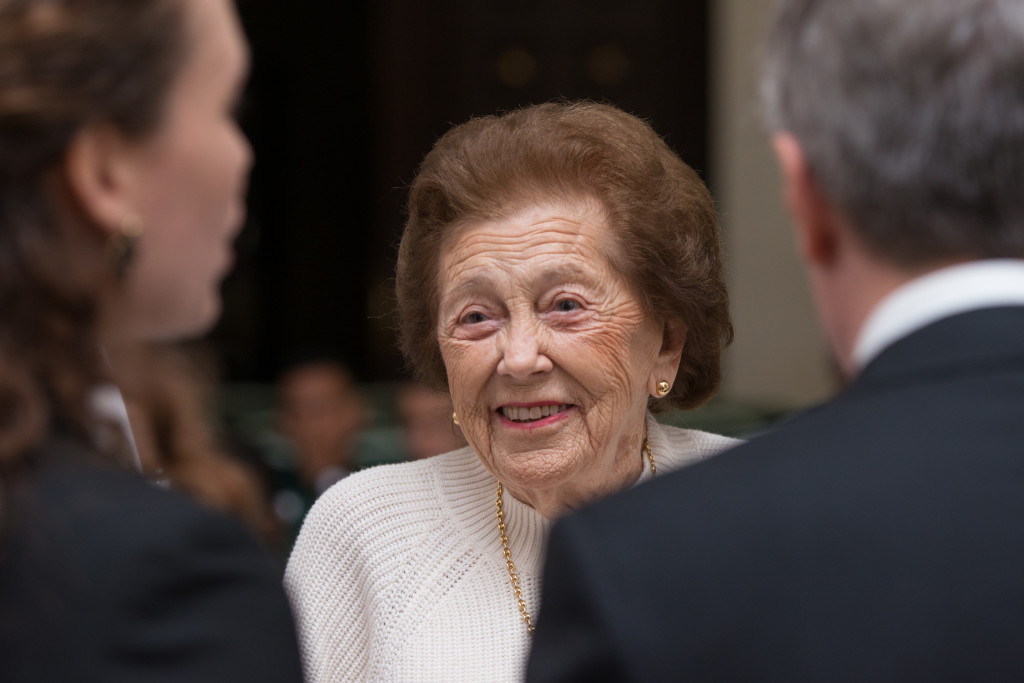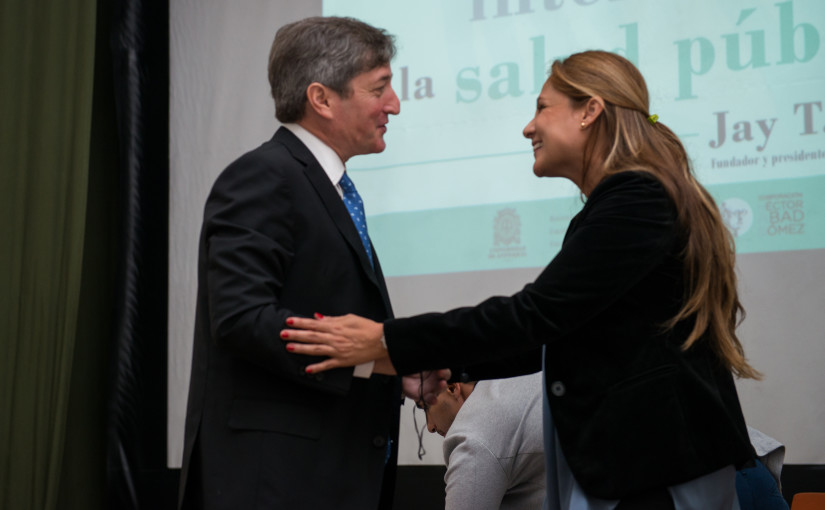Open dialogue is a cornerstone of building trust and understanding as it provides a platform to share perspectives, exchange ideas, and bridge differences. For Héctor Abad Gómez, a prominent Colombian medical doctor, university professor, and human rights activist, creating a space to expand Colombia’s political and social discourse beyond the dominant voices of his time, was as much a civic duty as it was paramount to creating a path towards progress and peace in his war-torn country.
Dr. Gómez was a relentless champion for social justice in his hometown of Medellin, once considered one of the most violent cities in the world, but now recognized as a city of progress and innovation. In addition to his strong ties to the University of Antioquia, Dr. Gómez was the founder and president of the Committee for the Defense of Human Rights and the National School of Public Health, as well as the municipal Secretary of Education and Secretary of Health for Antioquia. His most notable public health initiatives include one of the first polio vaccination campaigns in Antioquia, instituting the mandatory rural year post for recently graduated medical student, and the promotion of other rural health campaigns.
Dr. Gómez’s outspoken political views fighting on behalf of the rural and urban poor of Antioquia, however, often put him at odds with those in power, leading to his assassination in 1987. Twenty years after his death, in memory of his work and commitment to social justice, the University of Antioquia and the Hector Abad Gomez Foundation created the Hector Abad Gomez Cátedra, an open discussion on building greater civic-mindedness with a focus on health, education, and human rights. Since 2006, the University of Antioquia has held more than 30 public discussions, inviting thought leaders from an array of fields to share their insight, exchange ideas, and keep students and the larger Medellin society actively engaged in civic affairs.
Earlier this month, the Open Hands Initiative Founder and Chairman, Jay T. Snyder was invited to lead a discussion on the role of international philanthropy in promoting public health at the Hector Abad Gómez Cátedra. Moderated by Dr. Marcel Garces, the Coordinator of Inter-institutional Affairs at the University of Antioquia’s School of Medicine and a Program Lead of our Post-Conflict Colombia and Public Health project, the Cátedra was attended by over 100 medical students, faculty and members of the public.
As Mr. Snyder shared, “Private philanthropy can often work faster and in areas that governments can’t or won’t, filling in gaps on important intellectual capital and resources on issues that have a global impact, like public health.”
As Mr. Snyder shared, “Private philanthropy can often work faster and in areas that governments can’t or won’t, filling in gaps on important intellectual capital and resources on issues that have a global impact, like public health.”
Moreover, as Mr. Snyder added, philanthropy is about making progress and is driven by seeing ourselves in other people and connecting on a human level: “Philanthropy extends beyond a political party or an election outcome. When people connect on a human level, we make a progress.”

But getting to the point where different groups can connect and work effectively together begins with taking that important first step in building trust: open dialogue.
As Mr. Snyder noted, successful philanthropic endeavors are made when all parties commit to listening to each other. He shared, “[Our Post-Conflict Colombia and Public Health project] is just one of many examples of how international philanthropy can take shape. I would like to stress that listening and working with our local counterparts as a team of equals is essential.”
The Open Hands Initiative’s collaboration with the University of Antioquia is part of the Foundation’s larger mission to encourage ordinary citizens to build partnerships across borders and take an active role in their communities to address global issues such as health equity.
Like Dr. Gómez, the Open Hands Initiative believes prosperous communities start with healthy and engaged citizens. By collaborating across cultures to broaden discussions on approaches to healthcare and delivery, it hopes to create platforms for emerging young leaders to discover more effective ways to ensure that everyone has access to optimal healthcare services and advance global health equity.
A video of the Cátedra is forthcoming. In the meantime, view photos from the event on our Flickr page and learn more about the Open Hands Initiative’s work in Colombia here.
Follow us on Facebook, Twitter, and Instagram.
